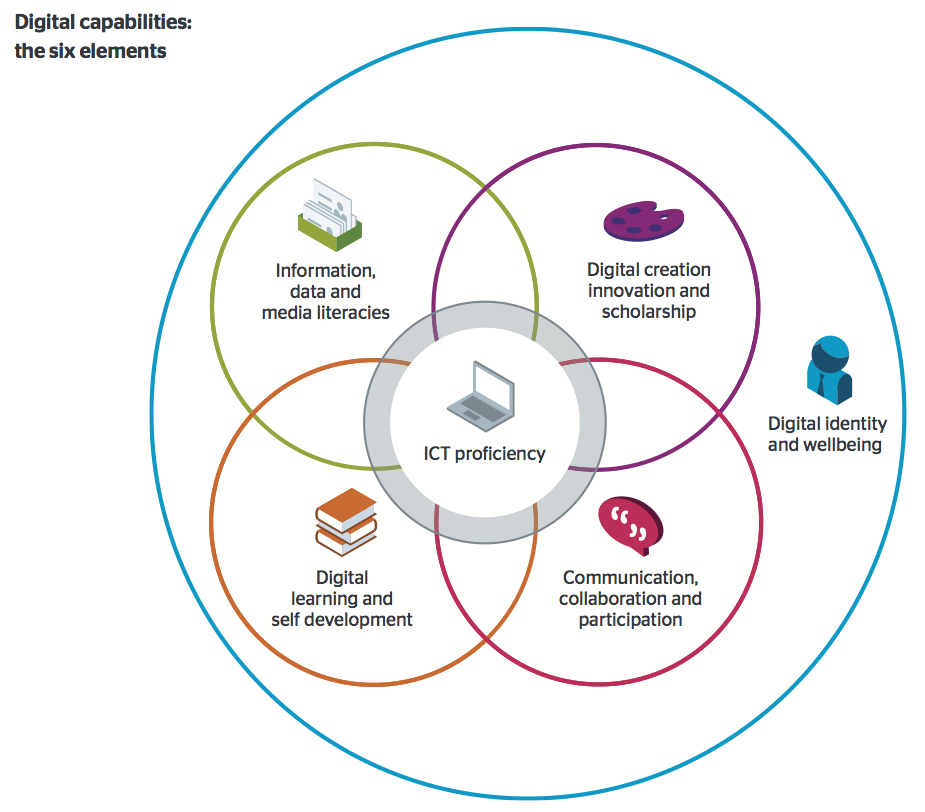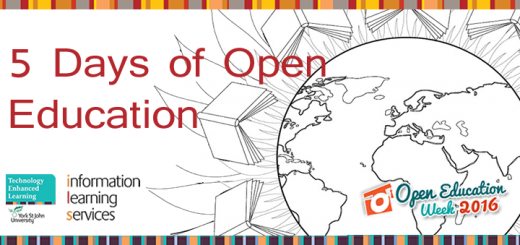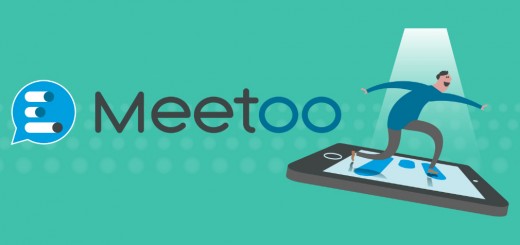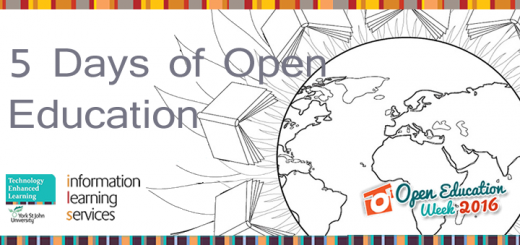Spotlight on Digital Capabilities III: Developing Academic Staff Digital Capabilities
“Digital Capabilities can be defined as the skills and/or competencies required for living, learning and working in a digital society.” (Jisc, 2015).
The Jisc Digital Capability Framework provides a structure to help individuals understand what skills are needed and supports the development of staff and students. Following extensive sector-wide consultation, and an evidence-informed approach to development, Jisc have produced an initial model of the framework which describes digital capability as six overlapping elements:
For a more comprehensive definition of each of these six core elements see our blog post Spotlight on Digital Capabilities I: What are Digital Capabilities?
“Effective use of digital technology by university and college staff is vital in providing a compelling student experience and in realising a good return on investment in digital technology.” (Jisc, 2015)
Developing successful staff-student partnerships will be paramount to the successful embedding of the Digital Capability Framework. The curriculum is the main focus of students’ attention and driver of effort so is potentially the best route to showcase and develop digital practices.
In order to embed digital capabilities in the curriculum, staff need to be engaged and will need continued support and development as the practices they model will become examples for students. The Academic Development Directorate will continue to support staff in embedding digital capability in curriculum, in-line with the new Graduate Attributes and Curriculum for Student Success, and to develop their own digital capability in order to enhance teaching, learning, assessment and research. Through engagement with this Framework and active consideration of what and how staff use technology to facilitate learning and teaching, staff will also be aligning their practice to the UK Professional Standards Framework (UKPSF).
Jisc have developed an example Academic Staff Digital Capability Profile [PDF], which can be used as a starting point for how we might define and support academic staff Digital Capability.
They have also developed a Digital ‘Lens’ on the UKPSF [PDF], which maps it to this model. For each element of the UKPSF, this resource identifies how staff might develop and/or demonstrate this element through activities in a digital setting or with a digital flavour, and provides links to relevant resources for building digital practice and know-how.
This resource can also be used by professional staff who are seeking accreditation via the UKPSF for relevant aspects of their role, e.g. staff who support the use of technologies for learning and/or support the development of digital literacies.
Many of these documents and resources are currently under development, but even in their draft form they could be used during activities or discussion, including the Curriculum Design Lens on Digital Capability [PDF], and Digital Capabilities: Example Questions for Academic Staff [PDF].
What do you think of the academic ‘lens’ on digital capabilities? How do you think this compares with other models/frameworks such as TPACK? Where are the main opportunities/threats to developing academic staff digital capability? What can we do to better support our teaching staff? Let us know in the comments below…
For help, information or advice about Digital Capability, or to discuss any questions, comments or concerns you might have, please contact TEL@yorksj.ac.uk.
Phil
Reference
Jisc: Building Digital Capability https://www.jisc.ac.uk/rd/projects/building-digital-capability



